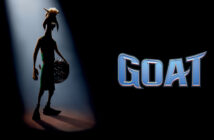Jennifer Reynolds, Senior Editor
Ask anyone, regardless of profession or background, and they will tell you that it is notoriously hard to break into a career in the film industry. That’s exactly what Trilith Institute is trying to do away with. With a new slate of classes designed specifically to help bridge the gap between where you are and making it in the industry, they hope to launch the next generation of creatives in Georgia.
Trilith Institute’s professional education classes are the brainchild of its cofounders, Jeffrey Stepakoff and Josh Lee. Both previously worked with Georgia Film Academy, which provides professional workforce training for the industry but is predominantly aimed at crew jobs. Stepakoff and Lee wanted to expand on GFA’s work and begin offering training for creatives within the industry.
“Storytellers are the backbone of the entertainment industry. While Georgia’s film and television production has surged with a $4 billion boost, the state’s entertainment sector is still incomplete,” notes Jeffrey Stepakoff, President and CEO of Trilith Institute. “We often lose our writers and creatives to other states because we lack a comprehensive entertainment ecosystem here. At Trilith Institute, we’re crafting a new approach to keep our writers and creative talent in Georgia by nurturing their growth and providing essential opportunities.”
They began the program with a soft launch by offering one class, Cinematic Storyboarding. The class was taught by Justin Wagner, who previously worked for Floyd County Productions on the Emmy award-winning adult animation series Archer, where he rose through the ranks to art director/producer.
Sydney-Gene Pawlak was a student in Wagner’s course who said that she decided to pursue a career in storyboard animation while still a student at Kennesaw State University, yet schools often do not offer classes in storyboarding beyond an entry-level class.
She said that studying under Wagner not only gave her the skills she needed but also allowed her to learn what it’s like to work in the industry in her chosen field.
“He taught us how to be economical with our shot choices, which is something that artists don’t often think about. We focus on how it looks, but he challenged us to consider if what we create will benefit the production: will it be something we will have to rework later, how will it affect the budget?” she said. “He also taught us who to go to when we have questions and how the whole production pipeline revolves around storyboarding. That way, when we get a job, we’re not going in blind.”
By working with local organizations such as Floyd County, Alliance Theatre and Dad’s Garage, Trilith Institute aims to do more than simply teach its students; it also helps connect them with potential employers. Many of the courses come with add-ons such as headshots or showcases and even the chance for students to demonstrate what they learned to casting directors or other industry professionals.
“With our professional education classes, we want to make sure that we are providing access to the entertainment industry at a professional level for people at all walks of life,” said Mandy McCowan, senior director of operations and original productions for Trilith Institute. “We want to ensure that we provide industry-relevant curriculum.”
This fall marks the rollout of eight new professional education courses targeted at a variety of industry roles, including screenwriting, acting, directing, animation and more. All are taught in person at Trilith Studios Production Centre in Fayetteville, with the exception of Foundations of Filmmaking, which is an online course.
Additionally, students who complete three professional education courses and the Mastering Self-Marketing Workshop will be qualified to submit an original project for the Trilith Creative Excellence Fellowship Grant, which has a potential award of up to $10,000.
“The class has been incredibly beneficial for me because I haven’t had a storyboarding class that goes in-depth like this one. I’ve only ever had opportunities for entry-level storyboarding classes,” said Pawlak.
“The above-the-line space is still needed in the Georgia market,” said McCowan, using the industry terminology that refers to storytellers, directors and other niche roles on a set. “We want to help people have access to these kinds of careers. When I was coming up, you had to either stay below-the-line or go to New York or LA, and we’d like people to have the alternative of staying here and providing that education for them here in Georgia.”
To learn more about the Trilith Institute and register for their professional education courses, visit here.

Trilith Institute partners with local organizations to connect its students with the area’s top instructors and potential employers such as in this acting class with Dad’s Garage.





